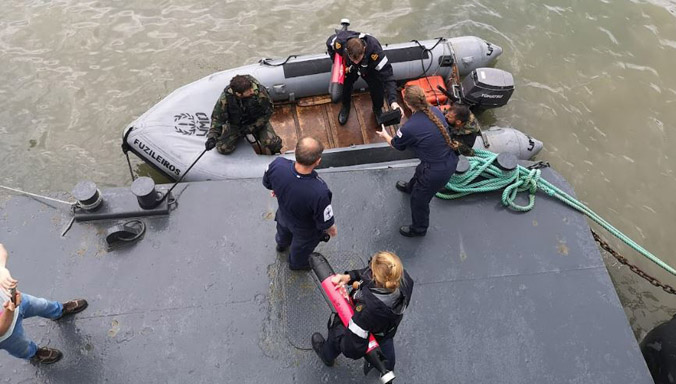Around 1,500 military and civilian personnel from NATO and partner countries are gathering in Portugal this month for two maritime exercises aimed at testing the interoperability of new maritime unmanned systems. Both exercises are being held in areas around the Troia Peninsula.

Exercise REPMUS 22, held from 12 to 22 September, brings together a wide range of contributions from NATO and partner countries, NATO Centres of Excellence, the NATO Centre for Maritime Research and Experimentation (CMRE), as well from industry and academia. During this period, around 1,500 personnel are testing the coordination of unmanned systems above the water, on the water and under the sea. Approximately 120 unmanned assets are being integrated into a single network for a range of experimentation scenarios. REPMUS 22 is led by Portugal and supports the NATO Maritime Unmanned Systems Initiative (MUSI). The NATO Maritime Unmanned Systems Initiative (MUSI) was launched in October 2018 to promote interoperability in the development of Maritime Unmanned Systems and since then it has been playing a growing role in the REPMUS exercise series.
Dr. Giorgio Cioni, Director for Armament and Aerospace Capabilities in NATO’s Defence Investment Division, welcomed the exercise, saying: “This is the first time that so many NATO nations have the opportunity to test the effectiveness of so many systems, concepts, techniques and procedures related to Maritime Unmanned Systems, ensuring they can work seamlessly together.”
Exercise DYNAMIC MESSENGER 22 will take place from 23 – 30 September 2022 with an emphasis on integrating maritime unmanned systems into maritime operations. It will be the first-ever exercise with a focus on unmanned underwater systems held under NATO command and on integrating unmanned systems into NATO naval task groups. The exercise will test Alliance readiness to use unmanned systems to counter security challenges ranging from conventional submarine threats, to sea mines and asymmetric threats. Both NATO’s Standing Naval Maritime Group 1 (SNMG1) and Standing NATO Maritime Counter Measures Group 1 (SNMCMG1) will be part of DYNAMIC MESSENGER 22.
DYNAMIC MESSENGER 22 will be conducted under joint leadership of NATO’s Allied Command Transformation in the United States and NATO’s Allied Maritime Command MARCOM in Northwood, UK.
Source: https://www.nato.int/cps/en/natohq/news_207293.htm
